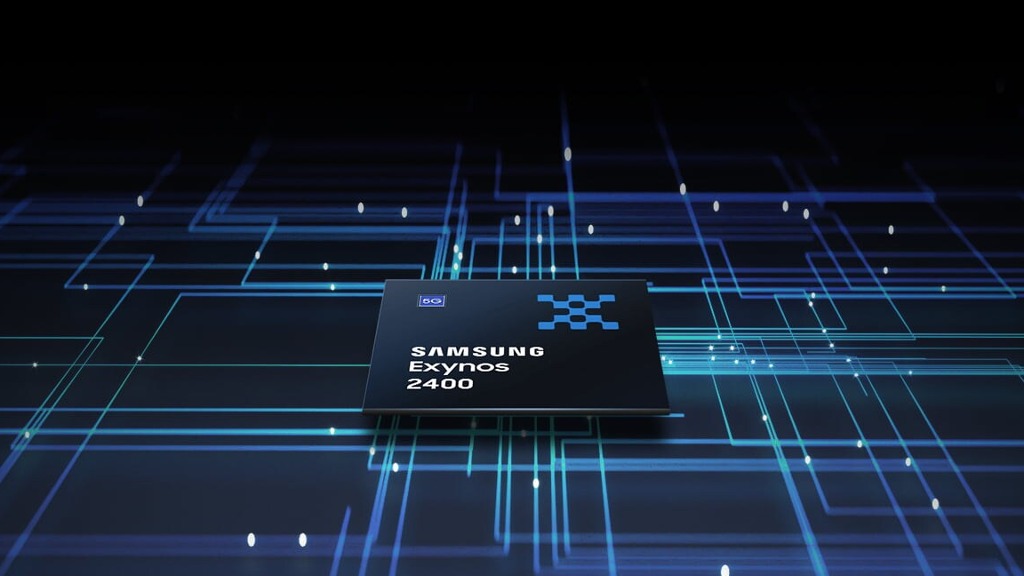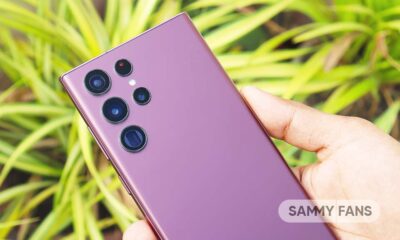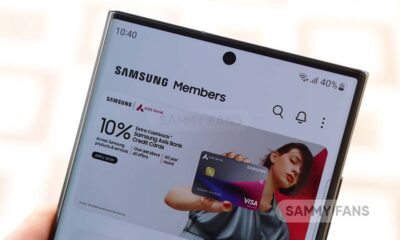News
Samsung Chief: AI Power Needs Responsible Hands

Samsung chief Jay Y. Lee (Lee Jae-yong) stated that AI must be used responsibly. During the AI Seoul Summit, Samsung’s boss stated, “It is crucial to responsibly utilize the advantages of AI technology.”
Amid the booming AI growth, Samsung is continuously enhancing products’ security. The company’s executive chairman is also concerned about minimizing the misuse of artificial intelligence technology.
Lee also said that “Globally, there must be discussions on how to minimize the misuse of AI and maximize its benefits during the innovation process.”
As Samsung is a key player internationally, maintaining consumer trust is a must. While the presence of AI stuff is increasing across Galaxy products, security, and privacy must be enhanced to prevent any kind of misuse.
Earlier, the Korean tech giant applied its security solution “Knox” to “Family Care.”. Samsung’s AI home appliances are connected through integrated SmartThings and have enhanced security to counter privacy concerns.
Stay up-to-date on Samsung Galaxy, One UI & Tech Stuffs by following Sammy Fans on X/Twitter. You can also discover the latest news, polls, reviews, and new features for Samsung & Google Apps, Galaxy Phones, and the One UI/Android operating system.
Do you like this post? Kindly, let us know on X/Twitter: we love hearing your feedback! If you prefer using other social platforms besides X, follow/join us on Google News, Facebook, and Telegram.
News
Samsung Galaxy XR device isn’t coming this year, report says

Samsung could not launch Galaxy XR device this year a new report says. The anticipated gadget is now rumored to be about 6 months late. The company has been developing an XR device in collaboration with Google and Qualcomm.
The report says Samsung has changed its initial Galaxy XR headset plan to start production at the end of the year and launch early next year. Now, it is expected to be produced and released in the second quarter of next year.
The South Korean tech giant reportedly delayed XR production by two quarters. Industry insiders believe that the XR device could not be produced this year. The schedule has been delayed by about 4-5 months, pushing the launch to 2H26.
Samsung seems to have adopted a wait-and-see approach by adjusting its production and release schedule. This is due to slower than expected growth of the XR market despite the release of Apple’s Vision Pro following Meta.
Smart XR Glasses
Recently, Qualcomm’s CEO revealed that the XR device could come as glasses, not a Vision Pro-like headset. The product could be integrated with artificial intelligence, offering a stunning experience connected to a smartphone.
Samsung’s XR would feature OLEDoS and direct and indirect time-of-flight (dToF and iToF) sensors. Despite its small size, it is classified as a next-generation display as it can achieve ultra-high resolution of over 4K.
News
Samsung Galaxy Watch to use EV-like all-solid-state battery in 2024

Samsung could debut its first all-solid-state battery smartwatch in 2026. The company has recently announced the completion of small-sized all-solid-state battery development. It is expected to debut with a Galaxy Watch in 2026.
On September 22, Samsung Electro-Mechanics announced that it had successfully developed the world’s first small-sized all-solid-state battery. The company aims to commence the mass production of its new solution in 2026.
As compared to Li-ion batteries, all-solid-state batteries offer enhanced safety and greater flexibility in terms of shape. The company reportedly sent prototypes to its consumers for testing before production approval.
The next-gen all-solid-state battery features an industry-leading energy density of 200Wh/L. It can also be manufactured in curved shapes, making it ideal for smartwatches. Safety is also increased thanks to the non-flammable solid electrolyte.
Chosun expects the 2026 Galaxy Ring and Galaxy Watch could be the first set of devices to use the new battery technology. Samsung Elec won’t make any decision in a hurry as such a major change would be dangerous if not tested rigorously.
Samsung Electro-Mechanics explained that the battery is produced by stacking thin layers of electrodes and electrolyte materials, similar to the MLCC (multilayer ceramic capacitor) manufacturing technology it already possesses.
News
Samsung targets 2026 for 3D stacked SoC with hybrid bonding and TC-NCF

Samsung plans to begin mass production of 3D stacked SoC in 2026. The company wants to improve performance and overcome the difficulties of semiconductor miniaturization by stacking semiconductors with different functions.
The South Korean tech giant reportedly considering 3D stacked SoC. The company is pursuing both hybrid bonding and TC-NCF stack semiconductors vertically. It’s similar to HBM, which vertically stacks DRAM to increase bandwidth for AI calculations.
Samsung has recently conducted performance tests on stacking mobile APs with TC-NCF and has reportedly obtained good results. Furthermore, using TC-NCF for mobile APs is analyzed as a reflection of confidence in the technology.
Well, Samsung Foundry is not doing well for the next-gen process. The 3nm yield has not yet reached the threshold limit to enter mass production. Meanwhile, it’s good to see Samsung is continuing to innovate for a better future.
Hybrid bonding is an advanced packaging tech that directly connects the copper paths through which semiconductors exchange signals. The technology is not yet mature, hence, it cannot be used in system semiconductors for mobile devices.
To address this flaw, the company is reportedly developing both hybrid bonding and TC-NCF methods simultaneously. Before the hybrid bonding technology is perfected, TC-NCF will likely be applied first to implement 3D stacked mobile APs.












